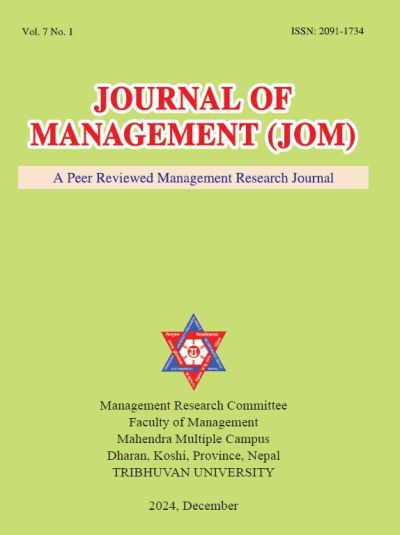Human Resource Development Initiatives and Employee Engagement in Nepalese Commercial Banks
DOI:
https://doi.org/10.3126/jom.v7i1.73540Keywords:
Career development, job security, , performance management, training and developmentAbstract
In the twenty-first century, concerns about employee compassion, exhaustion, and burnout have affected a lot of enterprises worldwide. All firms want to improve their workforce's cognitive, physical, and emotional involvement in order to address the difficulties. In order to address this issue, the purpose of this study is to conduct research into the human resource development initiatives and employee engagement in Nepalese commercial banks. The training and development, career development, performance management and job security are independent and employee engagement is the dependent variable. Descriptive and causal comparative research designs are used. The finite population of the study is 46508 and 384 employees were randomly chosen as respondents from 10 commercial banks in Nepal. A standardized Likert Scale questionnaire was used to collect the data with 1 specifying strongly disagree and 5 specifying a strongly agree. The data were analyzed using regression and descriptive statistics. The Chronbach's Alpha value has been used to measure reliability. The average alpha value of all the variables was 0.94 which has been considered excellent in quantitative research. The study findings show that career development, training and development, performance management and job security have been excellent on employee engagement in Nepalese commercial banks. This study's primary focus is on the necessity of proactive, all-encompassing approaches to human resource development initiatives in order to ensure alignment with business objectives and give top priority to employee engagement.
Downloads
Downloads
Published
How to Cite
Issue
Section
License
© Management, Research Department, Faculty of Management, Mahendra Multiple Campus, Dharan, Nepal

